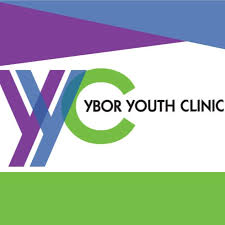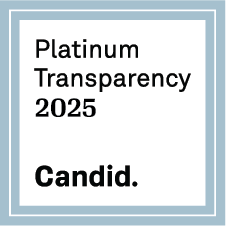I fired off 3 angry tweets just a few minutes ago (my, how Presidential of me!) before realizing that I actually had a lot more to say on the subject, so here we go.
I’ve probably been reading stories about how the American theater is failing audiences for 20 years. Or about how marketing people and producers are the ones failing theater companies and audiences. Or how critics fail audiences by not writing what people are interested in reading. I am pretty sure that at one time or another I have actively participated in every one of those arguments somewhere, some of them I’ve argued from both sides.
I think most every producer in the Tampa Bay region would agree that we need to diversify our audiences in just about every way as much as we need to make new people into theater attendees. This work can happen at a very individual grass-roots level, and it can happen by block recruitment. As far as grass-roots recruitment goes, it’s slow but steady for most. Someone knows someone who knows someone who might like show X and so they pass it on. A problem with the latter for many is that those blocks are really only actively pursued when the connection to the group is obvious (eg it’s a Jewish group and you have a show about Jewish people). At best this happens because people are working with no staff and less time, at worst it happens because people are — wittingly or not — outright pandering.
A glaring roadblock when it comes to our struggle to reach audiences — new or familiar — seems to me to be the lack of diversity when it comes to the people actually writing about theater here. I truly mean no offense, but the two standard critics in Tampa Bay are both middle-aged straight white men (says the middle-aged straight white man, really, I’m just stating fact).
While in the dressing room for Cloud Nine, one of the actors from out-of-market (though she is from here originally) asked if anyone else from any other possible group might come see the play, and it really struck me. As the two weeks have passed that ringing is sorta becoming a dull thud. If those are the only two voices we have with any kind of consistency, those are the only two perspectives potentially connecting the work on our stages with the public.
And that’s sad.
Then I started looking at Sydney Theatre Company’s website, they have a production of the same show going on right now, and I started to count all of the reviews there. From national and regional papers, alt-weeklies, lifestyle publications, blogs, and on and on and on.
And that made me even more sad.
Yeah, yeah, Sydney is a huge metropolitan city and we’re “just Tampa.” If you just thought that, we deserve better and you know it.
The more voices that can respond to our work, the more rich the picture an audience sees. The more voices in a community responding to work, the more likely that a reader finds someone who has tastes or predilections that might mirror their own. And, plainly, the more voices there are responding to work the more likely it’s going to be that a play finds its audience. No play can be all things to all people. Not everyone likes Shakespeare, or a murder mystery, or a farce. If critic X gets sent to a farce and doesn’t like farce, they can put a disclaimer in the body of their text but the damage is still essentially done. Same can be said when a critic doesn’t identify with characters or themes, or is at odds with a show’s morality.
Before anyone says “but if someone reads that this critic doesn’t like this kind of thing but they do, they’ll likely still be interested in it,” I’m saying that if we can develop more voices to talk about our work the more likely that other people like that reviewer will find their writing and be persuaded by it, eventually building trust and rapport. Of course if I read that someone was appalled by the Tarantino-esque level of violence in a play I’ll be intrigued but, again, I am already in the choir.
Some audiences will be quick to dismiss a play as “not for them” because it features certain kinds of characters or themes. “Oh, it’s a chick play/gay play/Jewish play/black play/teenager play/cancer play/sports play.” I have heard these sorts of things directly come from people’s mouths. Worse? The proof is in the box office reports. The phenomena is called “cognitive misery.” Again, I know that this is not as true for the theater die-hards. What about the people out there who a play directly speaks to/for/about? If the voices are lacking to better help connect the work to the people, how do we stand a chance?
I firmly believe that no play can be everything to everyone. I also firmly believe that a good story and good storytelling transcends any kind of identity category. But that takes work that a lay audience might not wanna put in. They came to laugh. Or to see people looking like them in situations that comfort them. Or, worse yet, and don’t get mad at me y’all, some audiences just might simply be put off by the “difference” presented in the work and so it gets ignored. That, my friends, defines privilege.
And we spend a dumb amount of time as producers trying to dance this dumb razor’s edge where we explain that a show is about certain kinds of people or things or ideas but then quickly backpedal and add the “oh, but it’s so powerful and universal that everyone’s gonna love it.” Audiences see through that, and we all know it. We say it anyway, because we have to and because it’s generally also true. Again, a good story is a good story.
In all my recent survey poring-over, I am connecting a few dots. Hardly anyone is moved by a print ad or internet banner into buying a ticket. Name recognition of the title is the number one factor (let’s be honest, this is how a lot of people buy Broadway tickets — they heard dotdotdot was all the rage!). As I got into the more nuanced categories I was surprised to see that after “Referral from a friend” and before “Who is in the show,” “Who the director is,” “Direct mail,” “Email,” and of course those online and print ads already mentioned were first “Tampa Bay Times review” then “Creative Loafing review.”
That shows me that the next-best trusted sources of information that make people act on going to a show are those two previously mentioned major publications in the area.
Wouldn’t it be nice to have more perspectives included?
I want to make it clear, when it comes to CL and TBT I *like* Andrew Meacham and Mark Leib. They are nice men, they work their rear ends off seeing a ton of shows and writing about them and I believe are both trying very hard to connect people with plays. I am not railing on them or saying they gotta go.
I’d just like a broader perspective. More perspectives.
I’m not sure how to do that. I know that BroadwayWorld is pretty much an open-source volunteer gig for folks, but it’s not always consistent in coverage. Hell, 20 local people could write for BWW and maybe that helps fix things, but there are a lot of potential issues there as well, I get it. Some folks offer (officially or not) “tweet-seats” for people to come out and cover things in some manner, which can have the same pros and cons as a lengthier BWW review. There’s potential for outright company shills, etc. Ethical considerations. And I suppose this is why we depend on “journalists,” right?
Hell, maybe if we had a critical mass of voices openly and honestly talking about our work to a broader community (though I love you theater folk out there who cheerlead for the area to the rest of us theater folk, please don’t go a-changin’, truly) it wouldn’t matter if it quickly became transparent. That lady over there is a shill for theater Y. This dude just hates himself a musical. And so on.
Perhaps Theatre Tampa Bay can be part of the solution. They already send 8-10 people out per production in the area who have to score and vote by category. Maybe they wouldn’t want to be held to writing a formal review (which can, btw, be more experience/audience-centric and not what I would distinguish as a critique. To quickly clarify I find Leib’s writing more formal criticism — academic — while Meacham’s writing more of a review). Hell, maybe I am alone and other companies wouldn’t want these kinds of assessments coming out (though I suspect most would welcome it).
Not everyone might be trained to offer a formal critique of a play, the writing, the acting, and so on, but ANYONE can talk about the experience. What it was like. What they enjoyed, maybe what they didn’t. What they took away, what it made them think about, or how it made them feel. Anyone.
This situation is but one tiny spoke in a giant wheel of how we can continue to grow and evolve as a community and to not only generate new audiences but to (because, as I keep saying, not all plays can be all things to all people) get certain plays in front of the people who would appreciate it the most or who should see it the most. It’s hard work.
I know I need to do better in reaching new people and better working with my community. I’m trying. I’m also one person. That’s not a cop-out, I say it with frustration.
If you’re out there reading this, I’d love to know what you think. As I keep insisting, I’m trying to make this space one for conversation. So, talk to me.











